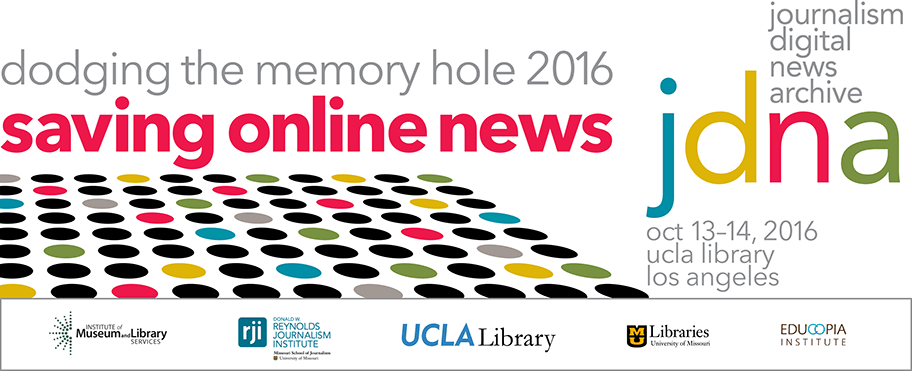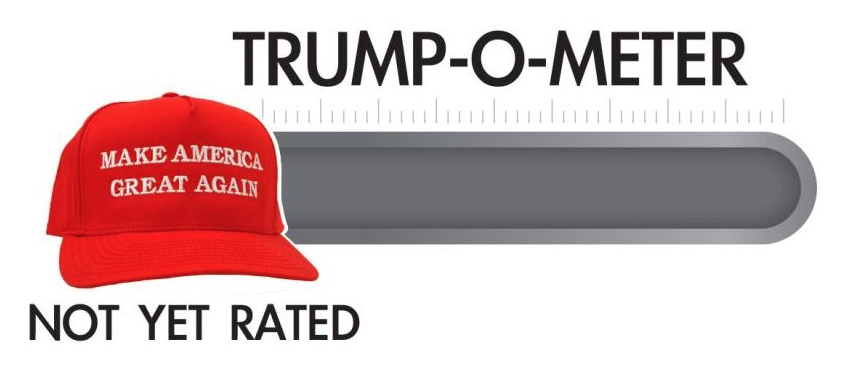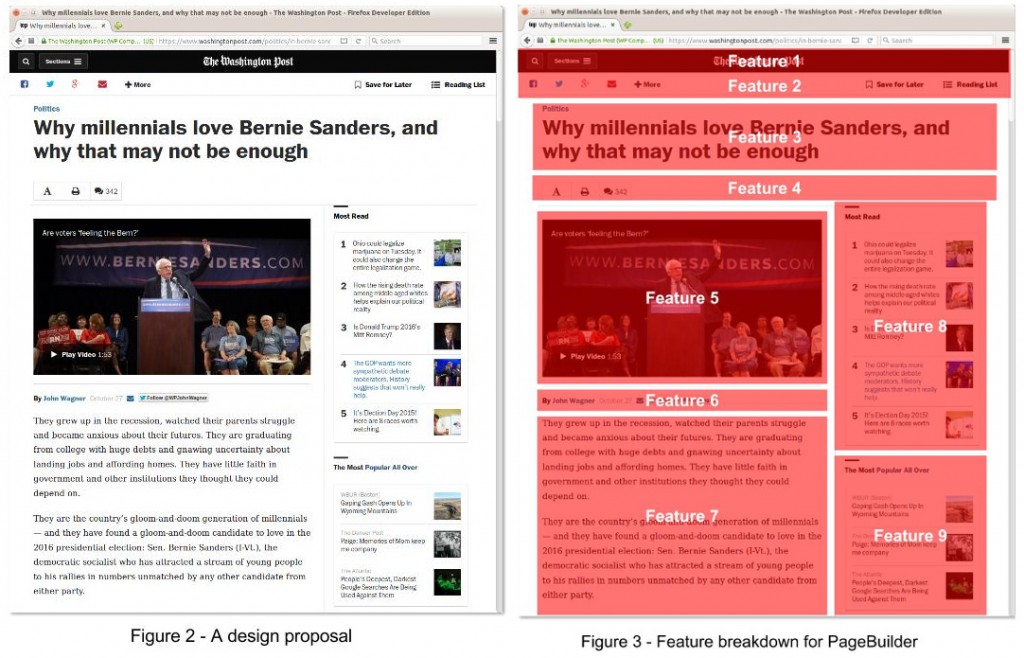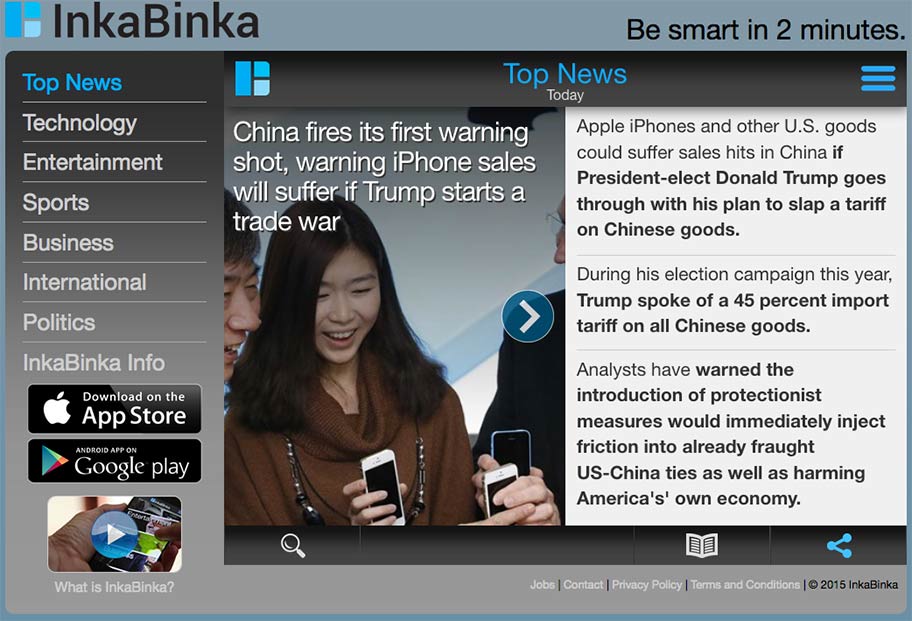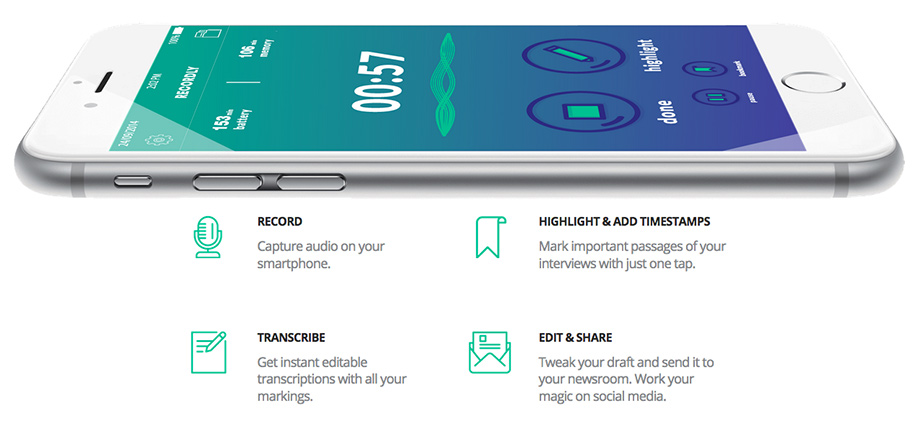
Tag: Technology
Clifford Lynch: Born-digital news preservation in perspective
Scroll to view transcript CLIFFORD LYNCH: [00:09] I’ll ask a little indulgence because I’m going to start in a place that may sound strange. It’s not with the news at all. It’s with the world of scholarly academic journals and the challenge that we face there. Same challenge: how do you preserve this body of … Continued
Kate Zwaard: Technology and community: Why we need partners, collaborators, and friends
Scroll to view transcript KATE ZWAARD: [00:07, Slide 1]: I just want to start with a quick caveat that I’m not here talking on behalf of the Library of Congress when I’m expressing my personal opinions. I’m using experience that I learned there. I’ll be talking about a few things that I think, and it’s … Continued
What is a Facebook Live editor?
Gone are the days when news organizations had just copy editors and page designers. Today, there are newsroom titles like digital optimizer, audience analyst and executive mobile editor. As social media platforms have evolved so have job titles, along with the tools journalists use to communicate with audiences. In this series, RJI will learn more about these titles and the people who hold them.
The rise of messaging is undeniable, and it’s not just text
Mobile messaging was born in December 1992 with a simple SMS: “Merry Christmas.” Today it’s the most ubiquitous form of human communication short of speaking. Any of the 6 billion of us with a phone can do it. And with the advent of apps like WhatsApp, Facebook Messenger, Viber, Line, WeChat and Telegram, messaging is … Continued
How do you connect disconnected people to the internet and digital news? There’ll be an app for that
My cousin lives in Cuba. He is one of the lucky 250,000 Cubans (out of 11.2 million) who connects to the internet every day. To connect, he first purchases an access card from ETECSA, the state-owned telecommunication company, at 2 CUC per hour of internet (10 percent of the average salary for a Cuban citizen). … Continued
Coming 2017: the Trump-O-Meter
Editor’s note: PolitiFact has a 2016-2017 RJI Fellowship at the Donald W. Reynolds Journalism Institute. Executive Director Aaron Sharockman is the project leader for the fellowship. This blog is reposted from politifact.com.
How The Washington Post built a publishing platform accidentally on purpose
The Elizabethan dramaturge John Webster gave one of his characters these immortal words: “There’s nothing of so infinite vexation/As man’s own thoughts.” Of course, he was lucky enough to live nearly 400 years before the first content management system was invented. In early 2013, The Washington Post found itself in a particularly vexing situation: The … Continued
InkaBinka: The news startup that’s actually a technology company
Dutch graduate students visited four U.S. journalism startups between December 2015 and February 2016 to observe how these entrepreneurs “make it work” and, in the process, redefine what it means to be a journalist. Their work is part of Beyond Journalism, a study of entrepreneurial journalism by 2015-2016 RJI Fellows Tamara Witschge and Mark Deuze, both journalism professors in the Netherlands.
Chicago incubator to help student-developed transcription app move toward launch
Recordly won 2016 RJI Student Competition
